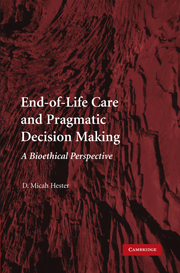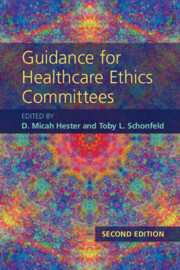End-of-Life Care and Pragmatic Decision Making
Every one of us will die, and the processes we go through will be our own - unique to our own experiences and life stories. End-of-Life Care and Pragmatic Decision Making provides a pragmatic philosophical framework based on a radically empirical attitude toward life and death. D. Micah Hester takes seriously the complexities of experiences and argues that when making end-of-life decisions, healthcare providers ought to pay close attention to the narratives of patients and the communities they inhabit so that their dying processes embody their life stories. He discusses three types of end-of-life patient populations - adults with decision-making capacity, adults without capacity, and children (with a strong focus on infants) - to show the implications of pragmatic empiricism and the scope of decision making at the end of life for different types of patients.
- Uses a pragmatic philosophical approach to end-of-life decision making
- Addresses three important patient populations: adults with decision-making capacity, adults without capacity, and children (with a strong focus on infants)
- Provides arguments about perennially challenging topics such as physician-assisted suicide and patients in a vegetative state
Product details
January 2010Adobe eBook Reader
9780511654800
0 pages
0kg
This ISBN is for an eBook version which is distributed on our behalf by a third party.
Table of Contents
- 1. Crito revised
- 2. Blindness, narrative, and meaning: moral living
- 3. Radical experience and tragic duty: moral dying
- 4. Needing assistance to die well: PAS and beyond
- 5. Experiencing lost voices: dying without capacity
- 6. Dying young: what interests do children have?
- 7. Caring for patients: cure, palliation, comfort, and aid in the process of dying.





